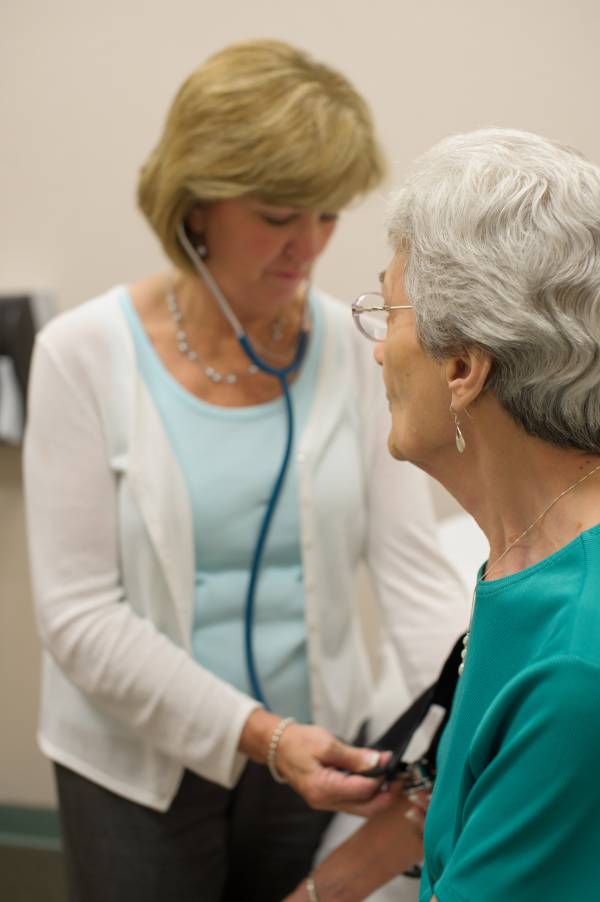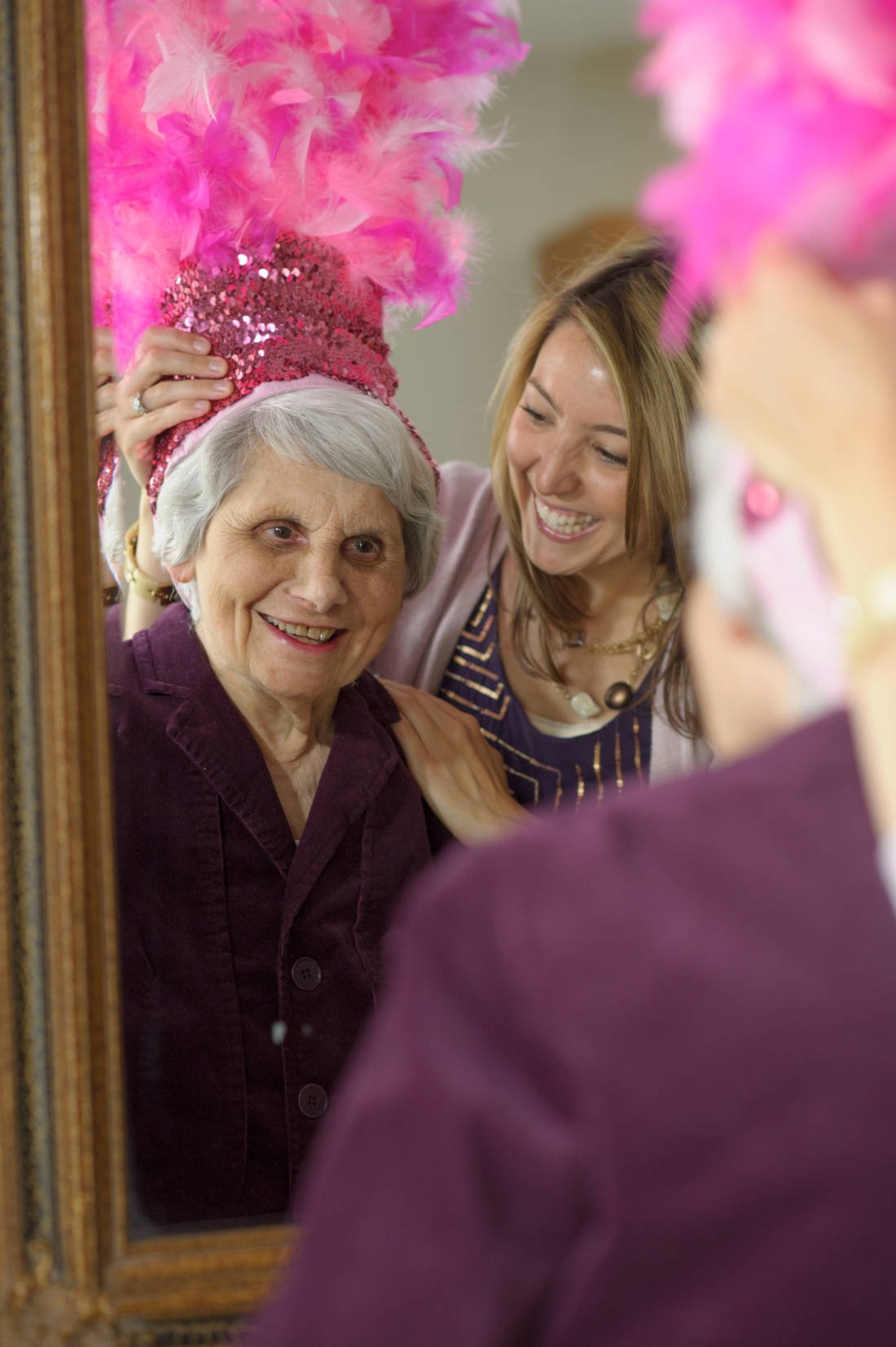Stroke Prevention: Help for Your Aging Loved One
assisted living | Aging & Caregiving
 Stroke is one of the country’s leading causes of death, killing nearly 130,000 people every year, according to the Centers for Disease Control and Prevention (CDC). Stroke doesn’t just kill, however; it is also the leading cause of serious long-term disability in the United States. While strokes (which occur when the blood supply to the brain is interrupted or reduced) can occur at any age, stroke risk increases for seniors.
Stroke is one of the country’s leading causes of death, killing nearly 130,000 people every year, according to the Centers for Disease Control and Prevention (CDC). Stroke doesn’t just kill, however; it is also the leading cause of serious long-term disability in the United States. While strokes (which occur when the blood supply to the brain is interrupted or reduced) can occur at any age, stroke risk increases for seniors.
Help your aging loved one live longer through these proactive stroke prevention strategies.
Healthy Diet
Eating right and maintaining a healthy weight minimizes the risk of a number of chronic conditions and ailments, including stroke and related complications. Encourage your loved one to adopt a plant-based diet by stocking their fridge and cupboards with plenty of fresh fruit and vegetables, as well as foods that are low in trans and saturated fats and high in fiber. Limiting salt, red meat, and alcohol can prevent a stroke by lowering cholesterol and blood pressure levels.
Exercise Matters
Active living offers a myriad of health and wellness benefits, and can help lower the risk of stroke. The U.S. Surgeon General recommends walking as an effective way to build strength and increase fitness. Be sure to speak with your loved one’s health care provider before beginning an exercise regimen; also, remember that baby steps lead to bigger ones, so start small and work from there.
One particularly effective way to get your loved one out and about is to join in the fun. Selecting an activity you can do together leads to health benefits for both of you. Additionally, many senior living communities offer specialized group fitness programs. Walking, yoga, and strength training are all great fitness options that can be adapted for different ability levels.
The Health Care Team
Your loved one’s health care provider plays a critical role in helping to reduce the risk of stroke with routine screenings. He or she can promote improved cholesterol and blood pressure levels through medication and encouraging lifestyle changes. Additionally, the importance of maintaining a healthy weight cannot be overstated: a healthcare practitioner can determine whether your weight is within a healthy range and help you implement a plan to reach your goals.
Diabetics are at an increased risk for stroke. Seniors with diabetes should be carefully monitored and encouraged to adopt healthy lifestyle behaviors. Seniors who smoke are also at a greater risk. If your loved one is having trouble quitting, a healthcare provider can suggest methods for success.
Medication Matters
In a perfect world, lifestyle changes would reduce the need for medication. In reality, medication is a necessary part of ongoing health and wellness. Whether your loved one is taking medication for high cholesterol, high blood pressure, heart disease or diabetes, it is important that medication is taken as prescribed. If your loved one is having difficulty managing their medications, it may be time to intervene. Consult with a pharmacy that delivers to avoid running to pick up prescriptions for your loved one and set aside a few minutes each week to help organize their medications. If your loved one lives in a senior living community, consider adding a medication management service to help with this task.
Every Minute Counts!
A quick response and fast treatment can reduce the damages cause by stroke. Be aware of signs and symptoms, and be prepared to move quickly. Signs and symptoms of stroke include: sudden numbness in the face, arm or leg, particularly on one side of the body; sudden confusion and/or difficulty speaking or understanding speech; sudden trouble with eyesight, walking, balance or coordination; and sudden severe headache with no discernible cause. If your loved one exhibits any of these symptoms, call 9-1-1- immediately. According to the Mayo Clinic, treatment must occur within three hours of the initial symptoms for optimal outcomes.
While strokes remain a very real threat to aging adults, the statistics are in decline -- likely because of raised awareness. By understanding the risk factors and implementing preventative strategies, you can help your aging loved one enjoy a longer, healthier life.
Key Takeaways
- Eating a nutritious plant-based diet is an effective tool against stroke.
- A daily exercise regimen, such as walking, improves comprehensive fitness while preventing stroke.
- Regular appointments with a healthcare practitioner are critical to preventing a stroke, as is taking medication as prescribed.
- Quick action in response to initial symptoms can save lives. The earlier emergency treatment begins, the better the chances of survival.
About Marissa Salvesen
My journey into the world of senior living began when I started working for United Methodist Homes in 2010. Starting as an Activities Director at one of our award-winning assisted and independent living communities and then transitioning to Marketing and Promotions Manager for UMH, I now work as the Manager of Mission Development, fostering the Mission and Values of our organization. I love sharing stories about the many ways we build meaningful relationships and enrich the lives of those we serve, and am proud to be part of building UMH’s 140-year legacy of caring. Wondering what makes our communities such special places to live and work? Connect with me and find out!

Our Blog is a 2016 Platinum Generations Award Winner! The Generations Award is an annual international competition for excellence in senior marketing recognizing professionals who have communicated to the 50+ Mature Markets.




